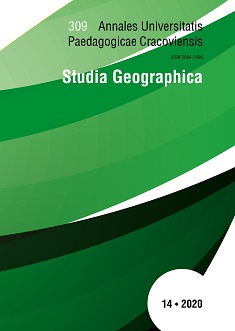Economic crisis or Brexit referendum? The impact of international and national events on the financial results of major corporations in the United Kingdom
DOI:
https://doi.org/10.24917/20845456.14.10Keywords:
brexit, London, corporations, economic crisisAbstract
In 2016 year, in the referendum, the British decided to leave the European Union.. The purpose of the study is to determine the changes in the financial performance of the largest corporations listed on the Forbes Global 2000 list, whose headquarters is located in Great Britain in the years 2006-2018. Approximately ¾ of them are located in London, therefore a closer analysis of the financial situation of companies in London was made. In the years 2015-2018, the number of HQs dropped slightly in both Great Britain and London. Also at this time, financial results of companies deteriorated, however, the decreases were smaller in London than in companies located in the rest of the country. The global economic slowdown of 2007-2008 had a much greater impact on the number of companies and their financial results with headquarters in the UK and London. Despite a significant decrease in the number of headquarters in 2006-2018, they are much richer and more powerful than before the economic slowdown. It seems that companies operating on a global scale are less dependent on European markets, while more sensitive to economic crises on a global scale. Perhaps the slight decrease in financial results after the referendum was caused by the lack of faith among corporate managers that Brexit would, however, which could hinder doing business with other European Union countries.
References
Beaverstock, J.V., Smith, R.G., Taylor, P.J. (1999). A rooster of world cities. Cities, 6(6), 445–458. DOI: 10.1016/S0264-2751(99)00042-6.
Bulmer, S., Quaglia, L. (2018). The politics and economics of Brexit. Journal of European Public Policy, 25(8), 1089–1098. DOI: 10.1080/13501763.2018.1467957
Csomós, G, Derudder, B. (2014). European Cities as Command and Control Centres. 2006-11. European Urban and Regional Studies, 21, 345–352, DOI: 10.1177/0969776412453149
Csomós, G. (2013). The Command and Control Centers of the United States (2006/2012): An Analysis of Industry Sectors Influencing the Position of Cities. Geoforum, 12(50), 241–251. DOI: 10.1016/j.geoforum.2013.09.015
Dorocki, S., Raźniak, P. (2017). Globalne zmiany ekonomicznego centrum grawitacji w oparciu o funkcje kontrolno-zarządcze miast. Studia Ekonomiczne, 320, 140–156.
Howarth, D., Quaglia, L. (2018). Brexit and the battle for financial services. Journal of European Public Policy, 25(8), 1118–1136. DOI: 10.1080/13501763.2018.1467950
Raźniak, P., Dorocki, S., Winiarczyk-Raźniak, A. (2017). Permanence of Economic Potential of Cities Based on Sector Development. Chinese Geographical Sciences, 27(1), 123–136. DOI: 10.1007/s11769-017-0850-5
Raźniak, P., Dorocki, S., Winiarczyk-Raźniak, A. (2020). Spatial changes in the command and control function of cities based on the corporate centre of gravity model. Miscellanea Geographica, 24(1), 35–41. DOI: 10.2478/mgrsd-2020-0002
Schimmelfennig, F. (2018). Brexit: differentiated disintegration in the European Union. Journal of European Public Policy, 25(8), 1154–1173. DOI: 10.1080/13501763.2018.1467954
Taggart, P., Szczerbiak, A. (2018). The effect of Brexit (and other crises) on Euroscepticism in other European states. Journal of European Public Policy, 25(8), 1194–1214. DOI: 10.1080/13501763.2018.1467955
Taylor, P.J., Ni, P., Derudder, B., Hoyler, M., Huang, J., Lu, F., Pain, K., Witlox, F., Yang, X., Bassens, D., Shen, W. (2009). The way we were: Command and Control Centres in the global space-economy on the eve of the 2008. Environment and Planning A 41(1), 7–12. DOI: https://doi.org/10.1068%2Fa41318
Taylor, P.J., Csomós, G. (2012). Cities as control and command centres: Analysis and interpretation. Cities, 29(6), 408–411. DOI: 10.1016/j.cities.2011.09.005
www.forbes.com, data dostępu: 15.10.2019
www.lboro.ac.uk, Globalization and World Cities Research Network, data dostępu: 15.10.2019
Downloads
Published
Issue
Section
License
The submission of a paper to be published is synonymous with an agreement to transfer the copyright free of charge from the author to the publisher. The author also agrees to permit the publisher to publish the paper in printed form, open access online form, digital library form and other digital platforms with which the publisher has or will have a publishing agreement. Furthermore, the author agrees to not limit the number of copies that may be printed or issued by the publisher. In the case of co-authored papers, it is assumed that the corresponding author is authorized to represent the remaining co-authors in this respect. Authors are requested to sign a copyright declaration.

